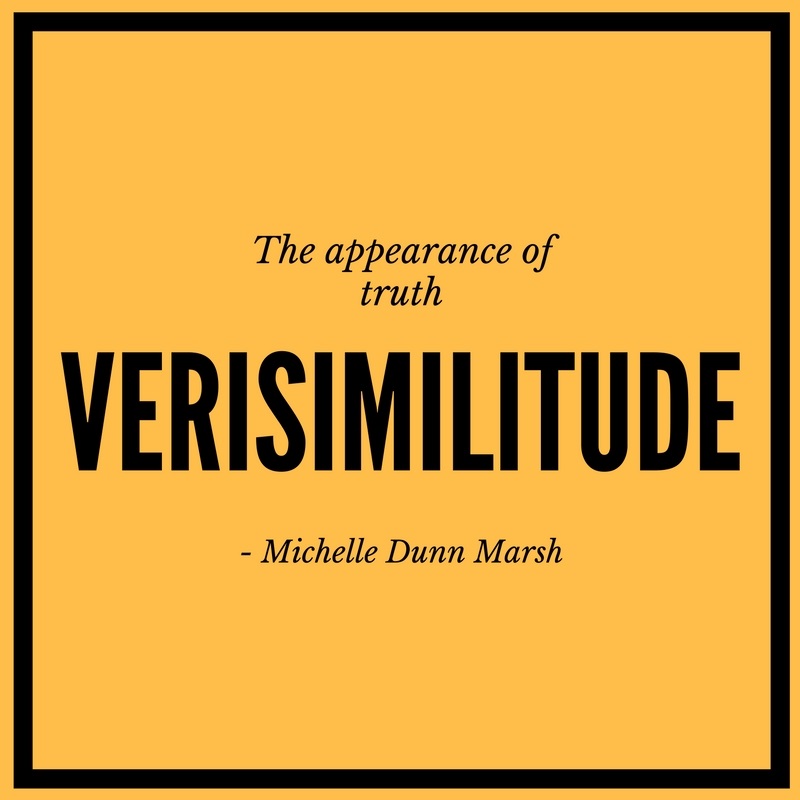By Shan Yonamine, Project Assistant, Seattle University Project on Family Homelessness

Introduction – This project and my purpose
It has been over two weeks since the “Streetwise Revisited” exhibit at The Seattle Public Library has closed, and I am still finding myself thinking about the project and reflecting on my experiences. I find myself torn between wishing that it wasn’t over, and feeling so grateful that it happened that I decided to reflect on it even further.
“Streetwise Revisited” was The Seattle Public Library’s public education program focused on “Streetwise,” the 1984 documentary film, and the 30-year collection of photos by the renowned documentary photographer Mary Ellen Mark. It consisted of a range of events from history talks to film screenings, and involved many important advocacy organizations that are also working to end homelessness.
Because the Seattle University Project on Family Homelessness was a community partner, I took the opportunity to attend as many of the “Streetwise Revisited” events as possible and I’m so glad that I did. The project provided me with an overwhelming amount of insight on “Streetwise” and how it can be used as a tool for advocacy. I heard the perspectives of many individuals who either had a role in the original film or who are working today to advocate for people who are experiencing homelessness. More importantly, I realized that, as advocates, we are all powerfully connected by our cause.
For these reasons, the “Streetwise Revisited” project had a profound impact on me as an advocate and as a person. I left each event feeling empowered and uplifted to create change. So, I decided to express my feelings for each event through this collection of my favorite quotes and my reflection on each of them, using the Canva website. In doing this, I hope to inspire others, but also to reflect and make sense of my experiences with the project.
Art History Talk: The Legacy of Mary Ellen Mark, Oct. 5, 2016

On Oct. 5, I attended an art history talk by Michelle Dunn Marsh, the executive director of Photographic Center Northwest and a colleague of Mary Ellen Mark. Michelle talked about Mary Ellen’s history, her work and the goal of her photography. She explained that Mary Ellen’s photographs go beyond seeing — they are meant to make us feel something.
Michelle said that Mary Ellen’s style was unique and that she was drawn to photographing disadvantaged people, “compelling us to see beauty and style in people we would have otherwise ignored.”
When she said this, I remembered the first time I saw Mary Ellen’s work through her photo book “Tiny: Streetwise Revisited.” I recall flipping through the pages feeling both immersed and confused. The images were stunning, but I wondered what compelled a photographer to take pictures of a runaway teen? What kept her coming back to photograph Erin throughout her life? I feel like the quote below captures the answer to my questions and more.

At the art history talk, I learned that Mary Ellen was a documentary photographer and that the initial goal of documentary photography was to illuminate social issues in need of change. One of these issues was teen runaways in Seattle. “Streetwise” began as a LIFE magazine-commissioned project but, like all of Mary Ellen’s projects, turned into a significant piece of social commentary, and a part of herself.

When Michelle explained the concept of verisimilitude, I felt as though I finally understood the goal of Mary Ellen’s photography: to show the truth. If you want to hear more of my thoughts on the art history talk, you can read “The Woman Behind ‘Streetwise’ – Exploring the Work of Mary Ellen Mark” or listen to the podcast from the lecture, “The Legacy of Mary Ellen Mark – An Art History Talk.”
Mary Ellen found inspiration in places that others would not even think to look, and she used her talent as a photographer to capture beauty in the most unlikely places. In my opinion, it takes talent to photograph things that people want to look at; but it is more difficult to photograph things that people want to ignore. (My supervisor, Catherine, liked this observation so much that she asked me to make an image out of it. So here it is.)

“Streetwise” Seattle University Campus Screening, Oct. 14

These words from Keanna Pickett, Erin’s third child, resonated with me. We had invited her to be a special guest at our “Streetwise” campus screening for a post-film discussion Oct. 14. One of the audience members posed an interesting question: What impact did “Streetwise” have on her and her family? I was expecting her to say that the film was a catalyst for change, or that it was a turning point for Erin. But, for her to say that it had no impact was very shocking.

Then, I thought about the second remark from Keanna that I consider a memorable quote (above). “Streetwise” is a powerful film, but in the end, it is just a film. It’s easy for people to watch it and then forget about it, because it can be uncomfortable to deal with the emotions it elicits. People who watch it don’t want to feel guilty or like they should be doing something that they aren’t. The power of “Streetwise” is only unleashed when people care enough to use it as a tool for advocacy.

Even though Keanna said that “Streetwise” didn’t have an impact on her family, she went on to explain how we can use the film to help families experiencing homelessness today. As seen in the quote above, Keanna believes that we should start small, creating conversations within our community which will eventually lead to larger social change.
I think it is inspiring that despite her difficult upbringing, Keanna uses her experiences to be an advocate. She is a gifted photographer and an educator at Washington Middle School, where she serves on the racial equity team and leads the after-school mentoring program for girls. She is married to SU alum D’Vonne Pickett, Jr., who played for the basketball team. She is also the mother of two young children.
Her story is truly inspiring and it was a great way to get the audience thinking about how her potential was not affected by her circumstance. To hear more of my thoughts on our “Streetwise” campus screening, you can read my blog post, “The Uncomfortable Conversation: Using ‘Streetwise’ as a Tool for Advocacy.” For another perspective, you can read my colleague Khadija Diallo’s blog post, “The Fight for Her Life – ‘Streetwise’ and Keanna’s Triumphant Story.”
Community Tour by Photojournalist Dan Lamont, Oct. 14

The “Streetwise Revisited” photo exhibit was open Sept. 15 – Nov. 3 at The Seattle Public Library. Anyone could view it during normal library hours, but SPL also invited community partners to conduct curated tours by experts on fields ranging from photography to advocacy.
This quote, above, came from one of the community tours we hosted, by tour leader and photojournalist Dan Lamont, one of our original Journalism Fellows on Family Homelessness. It stood out to me because, as I looked at all the photos of Erin, I couldn’t help but wonder what it was like to be in such a spotlight. There were so many photos of her in the most private settings offering such an intimate window into her life. How could she ever get used to all of that?
Somehow, it all made sense when Dan used the word “endurance.” I realized that Erin became used to having her life be open to the public because she had been doing it from such a young age. For her, this was normal.
Quotes from the Film “TINY: The Life of Erin Blackwell”

In the film “TINY: The Life of Erin Blackwell,” Erin periodically narrated her own story. This quote stood out to me. After watching the films and seeing Erin struggle on the streets as a child and with a methadone addiction as an adult, I couldn’t help but wonder if she had any regrets.
In “TINY,” it appeared that Erin’s life was better than before – being that she is no longer on the streets – but she still faced many challenges and carried a lot of baggage. However, I was glad to hear her follow this comment by saying, “But, I also think if I did it different, I wouldn’t have the kids that I have now.” This was powerful, because it shows her enduring love for her children and that she doesn’t regret having any of them.

After hearing about Erin’s regret, I was surprised to hear how she talked about her time on the streets. In this quote, it almost seems like she misses it, which is confusing; because, in the same film she said she wishes that she did her whole life different.
However, after some thought, I realized that this contradiction makes sense. It is natural that Erin enjoyed her time on the streets because, for her, it represented a time of freedom and she felt like she was part of a family, something she was missing at home. Now, she might regret her decisions because she is living with the consequences.
To hear more about “TINY: The Life of Erin Blackwell,” you can read my blog post, “There is No Perfect Answer – What I Learned from ‘TINY: The Life of Erin Blackwell.’” For another interesting perspective, read my colleague Khadija Diallo’s post, “Mothers, Daughters, Conflict – The New ‘TINY’ Movie Hits Home.”
Remarks from the Film Screening of “TINY: The Life of Erin Blackwell,” Oct. 14

The highlight of “Streetwise Revisited,” for me, was the “TINY: The Life of Erin Blackwell” screening, followed by a discussion with Erin and Martin Bell, Mary Ellen’s husband and the director of “Streetwise.” This quote (above) from Martin struck me immediately. As mentioned, “Streetwise” began as a LIFE magazine project about teen runaways in Seattle. Mary Ellen took on the project where she met Tiny and the other nine children. According to Martin, she then called him saying, “There’s a story here.” And, that is how “Streetwise” came to be.
After the documentary, Mary Ellen’s and Erin’s relationship continued, and Mary Ellen returned to photograph Erin during pivotal times in her life. Michelle Dunn Marsh had said that Erin was Mary Ellen’s muse and there was no one that she photographed more frequently.

When an audience member asked Erin what could have prevented her from turning to the streets, she did not have an immediate answer. It was clear that she had to think for a while before concluding that education is the key to end homelessness. However, I was surprised when Erin didn’t seem to know right away. But, perhaps if she knew, she wouldn’t have ended up on the streets in the first place. This made me realize that maybe youth experiencing homelessness don’t know exactly what they need to do to improve their situation and maybe they don’t know what resources are out there to help them.
Experiencing homelessness can be scary and confusing and I think it can be easy for the person experiencing it to become apathetic or feel overwhelmed. This is why advocacy – and my job – are so important.
Conclusion – An unforgettable experience
The “Streetwise Revisited” project will always hold a special place in my heart because it was the first thing that I worked on as a project assistant for the Seattle University Project on Family Homelessness. In many ways, it served as my first taste of what advocacy for homelessness looks like. Through the project, I was able to meet many other advocates for the first time and I gained many valuable connections and role models such as Davida Ingram from SPL, Denise Miller of Firesteel and YWCA Seattle – King – Snohomish and countless others.
I also discovered that having multiple advocates gathered together for the same cause is extremely powerful and uplifting. Some of the stories and personal testimonies that I heard through “Streetwise Revisited” were so inspiring and will stick with me forever, even after my role as a project assistant ends. To say that “Streetwise Revisited” is unforgettable would be an understatement and I am truly grateful to have experienced it. The project may be over, but the lessons I learned will surely last a lifetime.

What you can do
- Read my blog post about my initial reaction to the “Streetwise” film, before the start of the “Streetwise Revisited” project. Then watch the film.
- See how art inspired my colleague Mandy Rusch at “Create Change,” the art and advocacy day that was one of the final events of the “Streetwise Revisited” project.
- Check out the Storify that I did for “Create Change.” Make your own Storify about homelessness advocacy!
- Learn how you can get involved in homelessness advocacy by visiting our website. One great upcoming opportunity is Housing and Homelessness Advocacy Day, Feb. 2, 2017 in Olympia.
- Try out Canva yourself and make your own advocacy images. It’s easy and free. For more about how to create images quickly for advocacy, check out this Firesteel podcast and post.

